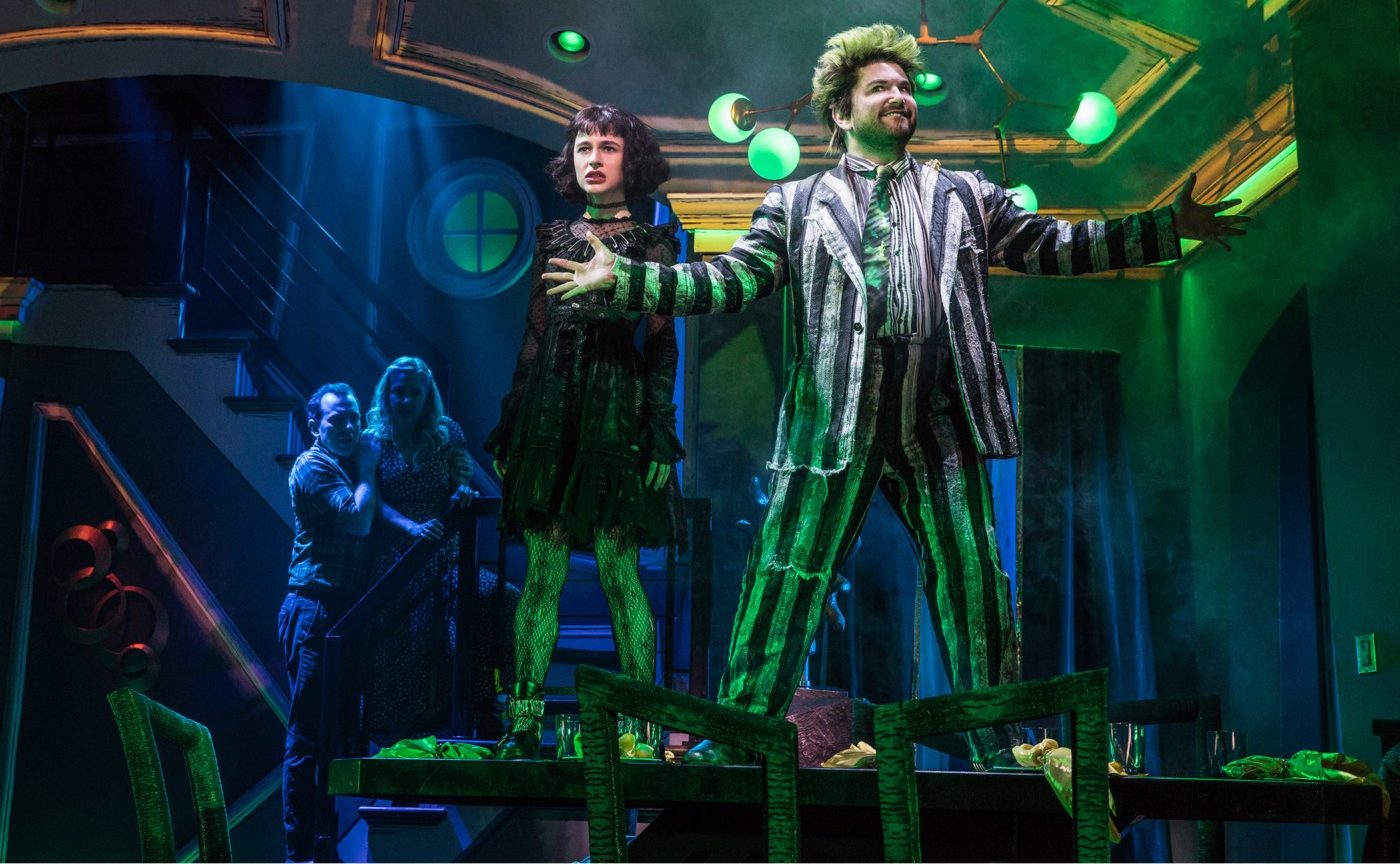Can horror make a good musical?
After years of rumours about a Beetlejuice sequel hitting the big screen, the bio-exorcist has instead made his Broadway debut this April. At first glance, the horror genre and musical theatre may not seem the most obvious combination, but there’s actually a sizeable history of highs and lows. Let’s take a look.
There are two ways to play a horror musical – either completely straight, stressing the horror, or by hybridising it with comedy (if you excuse a bevy of vampire shows that are essentially jukebox rock musicals). Beetlejuice is one of the latter types, as the film is also incredibly good fun (and one of Michael Keaton’s best performances). Comedy also underpins Little Shop of Horrors – something necessary since it was an adaptation of a 1960 Roger Corman film (Corman was known as a master of low-budget ‘pop cinema’). Similar examples include The Addams Family, Re-Animator and The Evil Dead, all films that are half-comedy anyway, and the iconic The Rocky Horror Picture Show.
Playing the horror seriously can result in emotionally powerful shows that still have the power to horrify
The choice to make horror musicals into comedies makes sense from an economic perspective – people are far more likely to go and watch a show that will make them laugh, and horror is a genre that is consistently strong in popular culture. Thus, that is what the shows tend to do. This approach has also proven interesting in adapting horrors that certainly were not intended to be funny, and a major example is 2005’s Silence!. This adapted version of The Silence of the Lambs began as an internet musical, and features some amusingly bizarre numbers for Hannibal Lecter and Buffalo Bill (I’d recommend Googling the lyrics, as they’re a thing to behold).
However, despite the predominance of horror comedies, that’s not to say that straight horror musicals can’t be successful. You need only look at the stage notoriety of The Phantom of the Opera or Sweeney Todd: The Demon Barber of Fleet Street to see how playing the horror seriously can result in emotionally powerful shows that still have the power to horrify. A more recent example is 2013’s American Psycho, which combines some psychological analysis with the book and film’s critique of capitalist and consumerist society, and received positive reviews.
It lost more than $8 million, making it one of the most expensive Broadway flops ever
This is not to say that all horror musicals pan out well. Look at the horror works of Frank Wildhorn (or, indeed, any of his works – Wildhorn’s theatre has been described by critics as “contemptible, shoddy and appalling”). The critic-proof composer wrote strictly dramatic versions of Jekyll & Hyde (1990) and Dracula (2001) and, although they attracted an audience, both were eventually doomed to close. Dracula ran for only 154 performances, and Jekyll & Hyde lost more than $1.5 million upon closure.
However, neither of these shows compare to one of theatre’s most notorious flops. After the success of Stephen King’s book and Brian de Palma’s film, the race was on to bring Carrie to the stage. The writing process began in 1984, and the show reached the stage four years later – even then, it was plagued by problems. Figuring out how to recreate the famous pig’s blood scene was incredibly difficult, and the actress playing Carrie’s mother resigned on opening night after nearly being decapitated by one of the set pieces. The show was eventually transferred to Broadway, where scathing reviews led to it being pulled after just five performances. It lost more than $8 million, making it one of the most expensive Broadway flops ever.
Whatever magic brings horror to the boardwalk, it can’t be captured on the big screen
I’d like to throw in a little caveat, too – although horror can make a strong transition to theatre, the musical flops when brought into the horror film. The cult Repo! The Genetic Opera and the underwhelming Stage Fright suggest that whatever magic brings horror to the boardwalk, it can’t be captured on the big screen.
Beetlejuice has received strong reviews and eight Tony nominations, so perhaps its success could lead to more horror musical shows. And, based on horror’s strange history with musical theatre, that could be incredibly exciting or a horrifying prospect.

Comments